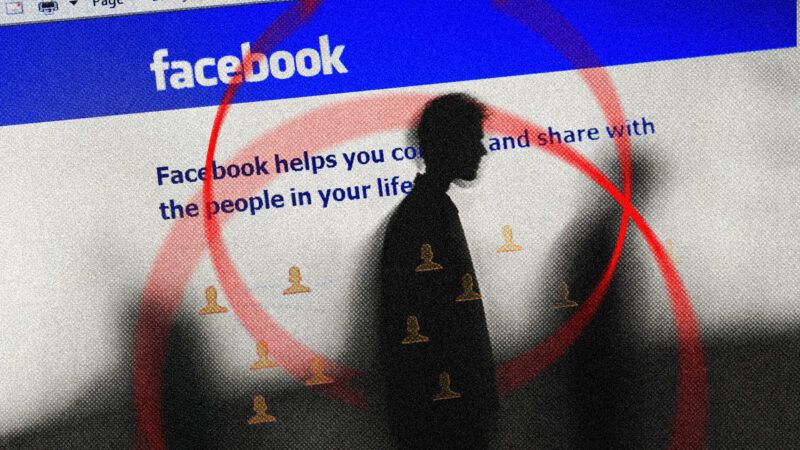Georgia Antidoxing Bill Could Criminalize Everyday Criticism
The bill is a "law against criticism of any kind," according to a lawyer who testified against it.

Will publishing someone's name or workplace online soon be illegal in Georgia? Last week, the state Senate overwhelmingly voted to pass an antidoxing bill that would punish a wide range of common online speech by up to a year in jail. While the bill aims to protect individuals from having sensitive information—like their Social Security numbers or addresses—published without their consent, it goes far beyond such private information.
The bill is a "law against criticism of any kind," Andrew Fleishman, a criminal defense attorney who testified against the bill, told Reason. "It means that if I act with reckless disregard for the possibility that it might cause you mental anguish or economic harm of $500 or more, I am criminally liable, up to a year in jail. And that's for using not just your name, not your Social Security number, not your address, but anything that could lead someone to that."
The bill passed on March 6 in a 52–1 vote. The bill defines doxing as a crime that occurs when a "person intentionally posts another person's personally identifying information without their consent and does so with reckless disregard for whether the information would be reasonably likely to be used by another party to cause the person whose information is posted to be placed in reasonable fear of stalking, serious bodily injury or death to oneself or a close relation, or to suffer a significant economic injury or mental anguish as a result therefrom."
According to the bill, prohibited personal information includes anything from posting a person's name, birthday, workplace, "religious practices of affiliation," and "life activities" to their biometric data or a "sexually intimate or explicit visual depiction." As a result, the bill is incredibly overbroad in terms of what speech it prohibits.
"So if I said 'Emma Camp is a crappy journalist,' yes, that makes me liable under law. But if I just said 'there's a lady at Reason I don't like,' that could also do. That's crazy," said Fleischman. "This is a law that has a million bad applications and maybe one good one."
Fleishman isn't the only one concerned that the bill violates the First Amendment.
"The idea that you could post something online and then someone else might act on that kind of just information, including someone's name, and you can be blamed for it criminally is certainly unconstitutional and would certainly chill speech," says Greg Gonzalez, legislative counsel at the Foundation For Individual Rights and Expression (FIRE), a First Amendment group. "We understand that there are times where information can be used for nefarious means, but there are already laws on the books that can be used to go after criminals."
Unfortunately, the bill seems poised to pass, though it seems likely that it will face a legal challenge should it be signed into law.


Show Comments (36)